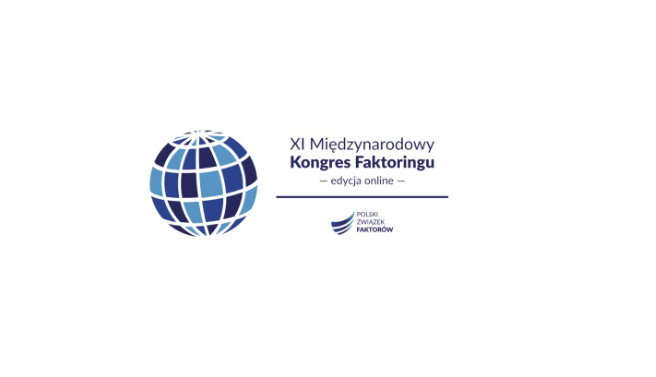The Factoring Congress is one of the most important events in the calendar of factoring and finance managers and professionals in Poland. This year, due to the circumstances surrounding Covid-19, the congress has been held through an online event divided into two sessions.
The first session took place on 1 October and discussed the situation of the global markets and the situation of the factoring sector. During the opening of the session, Grzegorz Sielewicz (Chief Economist of Coface), Jarosław Jaworski (Chairman of the Executive Committee of PFA) and Dariusz Steć (Executive Director of PFA) presented the economic situation during the second wave of the pandemic and the prospects of the factoring and corporate finance sector.
Grzegorz Sielewicz stressed that, from an international perspective, Poland’s economy has deteriorated, but it has not been as affected as in other European countries. He also indicated that, in relation to global growth, in 2020 there has been a recession of 4.8% which is expected to rise by 4.4% in 2021.
With regard to Factoring, Dariusz Steć mentioned that the sector is progressing well with regard to other countries, but it has not been an easy task as a result of the pandemic, which has had profound consequences on the economy. In Poland, the Factoring sector has been growing over the last 10 years, with growth at 20%. With the arrival of the pandemic, the Factoring sector fell to 16%, but after 8 months, momentum has grown and the sector is recovering.
The event came to a close with a debate on the following question: What is the future of the markets? In response to this question, Prof. Waldemar Rogowski (BIK’s Chief Analyst) mentioned that, since last March, everything has changed due to the pandemic. Meetings became non-presential and everything began to be managed online. Rogowski insisted that a business plan is needed to adapt to the circumstances, such as working from home.
Mateusz Walewski mentioned that in his situation required more effort than expected, as he was facing a difficult situation. For his part, Rogowski pointed out that at such times it is necessary to decide on strategies for maintaining operational capacity and knowing how to respond to adversity.
The second session took place on 15 October. New technologies were discussed, focusing on the following question: How to support business development?
The opening of the session was presented by Jerzy Dąbrowski (Vice Chairman of the PFA Executive Committee) and Michał Pawlik (Head of the PFA Technology Team).
This session started with two questions from the discussion: When we think about Factoring 5 years ago and compare it to today, has it changed at all? and the second question: Has the pandemic triggered technological changes in the factoring industry?
In response to the first question, 27% indicated that factoring had undergone minor changes, 70% indicated ¨significant changes¨ and 3% saw no difference. Regarding the second question, 9% indicated that the pandemic had triggered changes in Factoring, 70% indicated ¨somewhat¨, and 20% indicated ¨not really¨.
The pandemic could become an opportunity for change both externally and internally. One example of digital transformation is electronic signatures. Many companies did not dare to sign confidential documents that were not on paper, but technological changes led to documents being signed electronically.
As regards the Factoring sector, it was mentioned that there needs to be greater collaboration between factoring and the banks. Furthermore, a need to make sure that Factoring platforms are changed was insisted upon, so that they acquire more and more value and so that clients have greater ease in availing of different solutions.
The second part of the session discussed: How do new technologies change business management?
Milan Popović, PhD (University of Lodz), pointed out that the factoring and software industry has not changed significantly in the last 10 years. Szymon Wiliński (Director of Information Development at Coface), highlighted the importance of information today. Szymon stressed that by building new technologies, we can achieve incredible solutions. Radosław Drozd (PKO Leasing Board Member, PLA representative), explained that the pandemic has become an accelerator to enabling things online. Piotr Badura (Managing Director of CRIF), commented that companies have access to different online records thanks to the pandemic. Finally, Daniel Huszár (Head of Sales at efcom), ended by pointing out that the technological change has been enormous in recent years, highlighting that the pandemic will further strengthen this digital channel.
The event, which Alvantia had the opportunity to attend, concluded with the idea of adapting to a new reality in which the economy needs to improve so that, as a consequence, the factoring sector improves and manages to return to the expected levels of growth since we are living through a period of transformation that requires internal development in order to be successful.


